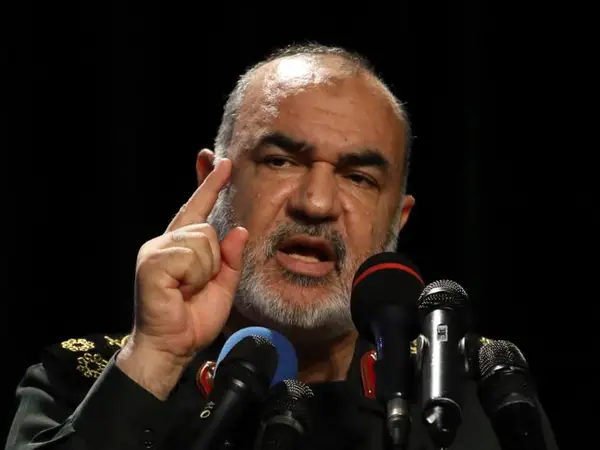In a rare move the IRGC commander-in-chief has warned about Israeli and western intelligence services’ aim to destroy the morale of their Iranian counterparts.
“The enemy wants to destroy our self-confidence, break us from within, and disillusion us, first and foremost, with ourselves,” Hossein Salami said at the inauguration ceremony of the new chief of the IRGC’s Intelligence Security (IntelSec) on Thursday.
Salami who made a rare admission of Israeli and western intelligence services’ capabilities and described them as steadfast and seasoned, claimed that despite their experience and access to complex technologies, these intelligence services have not managed to breach the barriers created by the Iranian armed forces’ intelligence security apparatuses to reach their targets in the armed forces.
Possible foreign infiltration in Iranian counterintelligence bodies, particularly by Israel, has raised alarm in Iran recently following a series of unexplained deadly attacks against IRGC officers and other breaches of security in Iran’s nuclear and military installations.
These attacks began with the highly complex assassination of Mohsen Fakhrizadeh, a key figure in Iran's nuclear program, in November 2020 near Tehran. The operation involved a one-ton remote-controlled automated weapon that had been smuggled into the country in pieces.
Israel has never officially taken responsibility for any of these assassinations and acts of sabotage but has also never denied involvement.
Israel’s alleged operations have exposed the vulnerability of Iran’s nuclear, military, and industrial facilities and individuals involved in its nuclear and missile programs, pundits say and caused confusion and suspicions of infiltration of the rank and file in security bodies.
Such operations are apparently meant not only to harm individuals and facilities but also as psychological warfare to destroy the self-confidence of the many security bodies in charge of protecting them.
“An earthquake has taken place in Iran’s security and intelligence bodies,” Mohsen Sazegara, expatriate political dissident told Iran International.
Sazegara, one of the founders of the IRGC after the victory of the Islamic Revolution of 1979, opined that an extensive purge is likely to happen in these bodies in the coming weeks and months as they seem to have been highly infiltrated by foreign intelligence services.
Supreme Leader Ali Khamenei on Monday appointed Brigadier General Majid Khademi, former head of the Defense Ministry’s IntelSec, as the IRGC’s new intelligence security chief. The change is considered as a pivotal move by Khamenei.
Khademi’s appointment followed a series of similar high-level changes in the IRGC Intelligence Organization (SAS) last week.
Khademis predecessor, Mohammad Kazemi, was introduced by the IRGC commander-in-chief as the successor of the controversial cleric Hossein Ta’eb as chief of SAS last week.
On Saturday, two days after Ta’eb’s dismissal, which officials say was a mere shift in positions, the head of the IRGC's special unit responsible for the Supreme Leader’s protection (Sepah-e Vali-ye Amr) was also replaced.
Citing officials with close ties to the IRGC who spoke on condition of anonymity, the New York Times on Wednesday reported that Brigadier General Ali Nasiri, a senior commander in the IRGC Intelligence Security, was secretly arrested on suspicion of spying for Israel. The arrest came before the Guards’ intelligence chief, Hossein Ta’eb, was replaced after 13 years at the helm of the organization last week.
This, one of the sources quoted by the New York Times said, followed the arrest of several dozen employees of the defense ministry’s missile development program were arrested on suspicion of leaking classified military intelligence, including design blueprints of missiles, to Israel.
